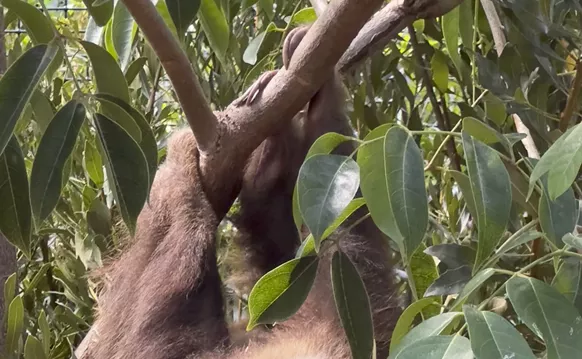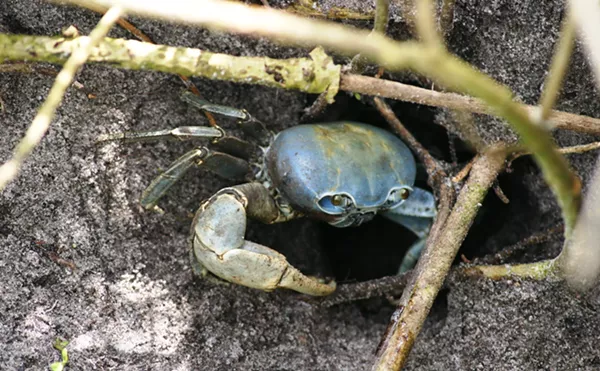The Everglades is a dangerous place. The list of animals able to kill you is comically large: One must stay on the lookout for pythons, alligators, bobcats, panthers, and even bears, not to mention mosquitoes, which can carry anything from dengue fever to West Nile virus to Zika.
When human beings have found themselves trapped in unsafe situations, they have in many cases paid bigger, stronger, scarier entities, like the Mafia, to protect them. It turns out wild animals are no different: According to a study released yesterday, birds in the Everglades have worked out a sick sort of truce with native alligators: They routinely feed their children to the gators in exchange for protection.
According to the study, led by University of Florida researcher Lucas Nell, ibises, storks, and herons often produce more chicks than they can care for. Most of these birds just starve to death. But, in the sections of the Everglades that Nell's team studied, which covers parts of Broward, Palm Beach, and Miami-Dade counties, the birds intentionally nest in trees just above where alligators regularly hang out. The birds do this for an obvious reason: The reptiles can't fly up and eat them but do, regularly, snack on nest-raiding predators, like raccoons.
Every so often, the study says, a baby or two falls from the nest. Said child then becomes a snack for the gators, who, we imagine, are all named Vinny and Sal.
The food source "potentially available to scavengers from wading bird colonies via dead chicks is substantial, enough to theoretically support large populations of alligators," the study hypothesized.
Between 2013 and 2014, the team observed alligator-bird colonies in Miami-Dade, Broward, and the Loxahatchee Wildlife Refuge in Palm Beach County. The researchers took blood samples from 39 female alligators. About half lived near wading-bird colonies, while the other half did not. The colony gators, researchers found, weighed six pounds more than the noncolony ones, on average.
Scientists have long suggested birds behaved this way, the study says, but little effort has been put forth to prove the idea. Naturally, South Florida was able to prove that nature is a cruel, soulless hellscape in record time.
Nell, who spoke to the Washington Post yesterday, said the study did come with one caveat: The alligators will, in a split second, eat birds in their colony without any semblance of remorse.
Trust no one.

Audio By Carbonatix
[
{
"name": "GPT - Billboard - Slot Inline - Content - Labeled - No Desktop",
"component": "16971022",
"insertPoint": "2",
"requiredCountToDisplay": "2"
},{
"name": "STN Player - Float - Mobile Only ",
"component": "18617832",
"insertPoint": "2",
"requiredCountToDisplay": "2"
},{
"name": "Editor Picks",
"component": "15769925",
"insertPoint": "4",
"requiredCountToDisplay": "1"
},{
"name": "Inline Links",
"component": "16575154",
"insertPoint": "8th",
"startingPoint": 8,
"requiredCountToDisplay": "7",
"maxInsertions": 25
},{
"name": "GPT - Rectangle 2x - Slot Auto-select - Labeled",
"component": "15782206",
"insertPoint": "8th",
"startingPoint": 8,
"requiredCountToDisplay": "7",
"maxInsertions": 25
},{
"name": "Inline Links",
"component": "16575154",
"insertPoint": "8th",
"startingPoint": 12,
"requiredCountToDisplay": "11",
"maxInsertions": 25
},{
"name": "GPT - Leaderboard to Tower - Slot Auto-select - Labeled",
"component": "15782207",
"insertPoint": "8th",
"startingPoint": 12,
"requiredCountToDisplay": "11",
"maxInsertions": 25
}
]











